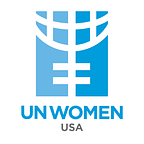Period Poverty: A Barrier to Gender Equality
Written by Johanna Angeles, Young Professionals Intern, UN Women USA LA
Menstruation is a natural biological process experienced by women, girls, transgender men, and non-binary people of reproductive age. Around the world, 1.8 billion people menstruate every month, yet millions remain restricted of their right to manage their menstrual cycles with literacy and dignity.
Period poverty is defined as inadequate access to menstrual health resources. These include but are not limited to menstrual products, sanitation facilities, waste management, and health education. Menstruators who live in poverty often resort to unhygienic alternatives such as rags and newspapers, which puts them at greater risk for urogenital infections. Additionally, period poverty and education are inextricably linked. It is estimated that lack of resources forces girls to miss 10 to 20 percent of their school days to stay at home and manage their period. Chronic absenteeism harms their education and serves as a barrier to escaping the cycle of poverty.
Period poverty is further compounded by stigmatization. In some cultures, menstruation is shrouded in fear and shame through deeply entrenched taboos and superstitions. Menstruators are often portrayed as dirty, untouchable, or disgraced. They are deprived of their agency and autonomy by discriminatory norms, including forced solitary confinement and exclusion from everyday physical spaces. At a policy level, stigmatization exacerbates period poverty by reducing support for menstrual health policies and initiatives since policymakers appear to be “constrained by the very stigma they seek to tackle, resulting in hesitancy and missed opportunities.”
We have to recognize that period poverty and stigmatization are deeply ingrained forms of sexism and misogyny. They reinforce structural discriminatory and patriarchal systems that disproportionately impact women and girls. Unless menstrual health is achieved, gender equality will remain out of reach.
Recently, there has been growing recognition that menstrual health is pivotal in the realization of human rights and gender equality. During the 50th Session of the Human Rights Council in June 2022, a panel discussion emphasized that menstrual health is on the global agenda today.
In the past, menstrual health was excluded from the agenda of international summits, like the Conference on the Population and Development (ICPD) and the Millennium Declaration, despite the direct link between menstruation and multiple Sustainable Development Goals (SDGs)–goal 3 (health), goal 5 (gender equality), and goal 6 (WASH) to name a few.
This year, menstrual health was finally included in the global development discourse through the Human Rights Council agenda. This success is a result of grassroots workers and activists from the Global South spearheading efforts to highlight the unique experiences and challenges women and girls face. Inclusion to the agenda is just the first step. Menstruation must be prioritized in the global agenda for the realization of human rights, gender equality, and SDGs.
